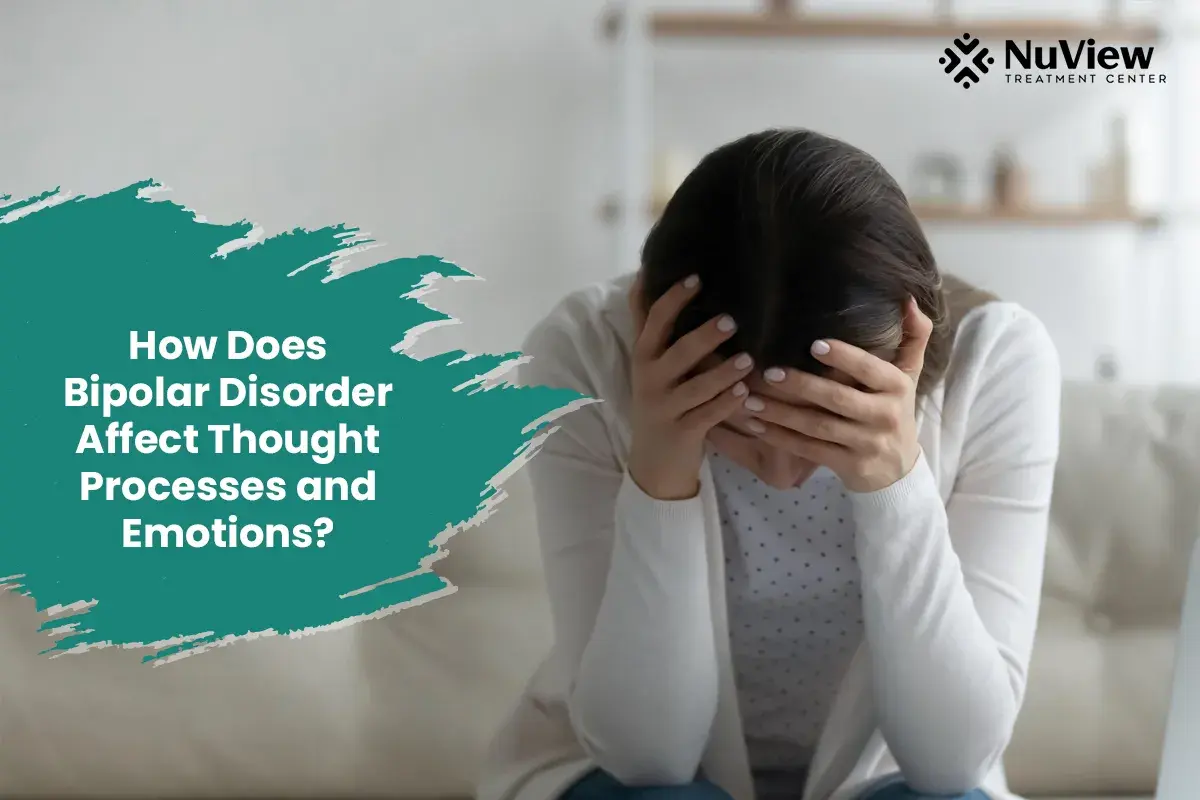There are many times when we have tried to hide our true feelings, especially from those who truly need to know how we are feeling. Why do we do this? Perhaps it feels wrong to just experience these feelings or let them out. These wrongful feelings stem from different things - social conditioning or just the feeling of keeping our emotions close to our hearts to feel safe and strong.
Whatever the reason may be, it is not fair or healthy. Years later, these bottled-up or suppressed emotions show up as crying bouts, anger, fatigue, helplessness, and many other ways. So, in this blog, we will learn what happens when you bottle up your emotions for too long and how to cope with them.
What Are Suppressed Emotions?
Suppressed emotions are when you consciously bottle up your innermost feelings instead of just experiencing them or avoiding letting them out. It can just be a preference or to protect yourself from feeling weak. However, the safety you experience from suppressing your emotions is just temporary.
Over time, these suppressed emotions fester and become like a deep wound to the point that they begin to adversely impact your physical and mental well-being. They also impede your interpersonal life and damage your interpersonal relationships. Therefore, you need to develop ways of letting out your emotions and channeling them in healthy ways.
Get Started With Nuview Treatment Center
Our dedicated professional staff is here to guide you or your loved one on the journey to lasting recovery, offering support every step of the way.
What Are Repressed Emotions?
Repressed emotions are feelings you have unconsciously avoided, ignored, or blocked, often without realizing they hold these emotions.
These feelings typically stem from childhood (or past) trauma or experiences, which can significantly impact behavior and mental health. Moreover, you can remain unaware of how your repressed emotions are impacting your behavior and life. For instance, a person may not be able to remember what they felt when they experienced something unpleasant or traumatic.
Suppressed Emotions vs. Repressed Emotions
Suppressed emotions and repressed emotions are often used interchangeably. However, they are quite different from each other.
When you suppress your emotions, you are doing it consciously. You bottle them up out of the fear of appearing vulnerable, to feel safe, social conditioning, or it might just be a preference.
On the other hand, repressed emotions are understood in the context of psychoanalysis, a school of psychology developed by Dr. Sigmund Freud. Repression is a defense mechanism wherein a person protects their sense of self and reality by repressing emotions and memories that are too painful or disturbing. Repressed emotions, unlike suppressed emotions, are unconscious processes. While repressing emotions may protect the sense of self and reality during childhood, it is not healthy in the long run as well.
What Happens When You Bottle Up Your Emotions?
Bottling up emotions, whether you suppress or repress them, can increase cortisol and lead to chronic stress and other mental health challenges like anxiety, depression, and substance abuse. It can also lead to physical symptoms, impact relationships, and hinder your ability to cope with everyday stressors.
Signs you are suppressing emotions:
- You might increasingly feel like others do not understand you.
- You experience feelings of frustration and irritability as if you are at odds with the world.
- You develop feelings of anger and resentment toward others.
- You may not want to spend time with others and isolate yourself.
- You experience somatic symptoms like headaches, stomach aches, general tension, and, in extreme cases, heart problems as well.
Symptoms of repressed emotions:
- You might feel numb or disconnected from your feelings.
- You experience sudden mood swings or intense emotional reactions to minor triggers.
- Unexplained anxiety or depression.
- You find it difficult to develop close relationships or emotional intimacy.
- Avoidance, displacement, denial, or using humor in case of emotional triggers.
- Memory gaps, especially related to childhood or specific events.
Get Started With Nuview Treatment Center
How to Stop Bottling Up Your Emotions
Get to the bottom of your negative emotions by introspecting with these questions: what are you feeling, when did you begin feeling this way, why are these feelings consuming you, and how are they affecting you and those around you.
Begin journaling your emotions. If you are not able to immediately speak out (and this certainly takes time), you can use journaling as a way to release your pent-up emotions. When you write down what you are feeling, you can identify your emotional triggers and patterns, while also developing ways to cope with them.
Speak with someone - it can be someone near and dear to you whom you can trust with your innermost feelings. It can be a family member, partner, or friend. When you share your emotions, you unburden yourself from different feelings that are holding you back. You also receive a shoulder to cry on, feedback, and encouragement.
Engage in self-care by taking care of your physical and mental well-being. Take time out of your busy day and engage in exercise; exercise releases endorphins, which heighten your sense of happiness and well-being. You can also treat yourself to a spa and engage in relaxing exercises like meditation and mindfulness.
While taking these steps is very crucial in expressing your emotions, it is not always the best to deal with bottled-up emotions by yourself, specifically when they have gotten too overwhelming and are impacting your physical and mental well-being. In this case, you can benefit by reaching out to licensed and trained mental health practitioners who can use psychotherapy or counseling to enable you to better deal with your bottled-up emotions.
How To Release Bottled-Up Emotions?
Releasing bottled-up emotions can safely happen via the medium of therapy. When you reach out to a therapist, they will provide you with a safe environment as well as the tools and skills you need to safely release your bottled-up emotions.
In therapy, you will learn to engage in better emotion regulation and expression in the following ways:
Cognitive Behavioral Therapy (CBT) - CBT is a highly popular therapy that uses cognitive reframing to identify and change negative emotions so that you can change how you view the different conditions around you.
Psychoanalytic Therapy - Psychoanalytic therapy is one of the earliest therapies. It allows you to explore and release your repressed emotions in a healthy manner.
Mindfulness - By engaging in mindfulness, you learn to observe your emotions in a non-judgmental manner and release them.
Coping Strategies - Your therapist will collaborate with you to equip you with coping strategies like journaling, stress management, healthy living practices, and more so that you can cope with your bottled-up emotions in productive ways.
Frequently Asked Questions (FAQs)
What are bottled-up emotions?
When you suppress or repress emotions instead of experiencing them and letting them out, it means you are bottling up your emotions. While it may temporarily provide a sense of relief and safety, it is detrimental to your physical and mental well-being in the long run.
Can bottling up emotions kill you?
While bottling up emotions does not directly kill a person, it leads to many physical and mental health challenges that can inadvertently damage a person’s life. Therefore, addressing bottled-up emotions early is crucial to a joyful, fulfilling life.
Can suppressing emotions cause memory loss?
Continuously suppressing emotions can lead to memory loss, dementia, and Alzheimer’s disease.
- What Are Suppressed Emotions?
- What Are Repressed Emotions?
- Suppressed Emotions vs. Repressed Emotions
- What Happens When You Bottle Up Your Emotions?
- How to Stop Bottling Up Your Emotions
- How To Release Bottled-Up Emotions?
- Frequently Asked Questions (FAQs)
- What Are Suppressed Emotions?
- What Are Repressed Emotions?
- Suppressed Emotions vs. Repressed Emotions
- What Happens When You Bottle Up Your Emotions?
- How to Stop Bottling Up Your Emotions
- How To Release Bottled-Up Emotions?
- Frequently Asked Questions (FAQs)
Get Help Today!
Everyone is Welcome Here and We All Have Your Back
Your healing journey deserves a personalized approach. At NuView, we integrate expertise in behavioral therapy, mental health, and substance use treatment to create a customized recovery plan tailored to your unique needs.
Connect with our Admissions Specialists today.






Written By
Dr. Ryan Peterson